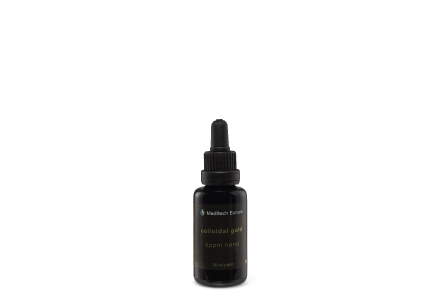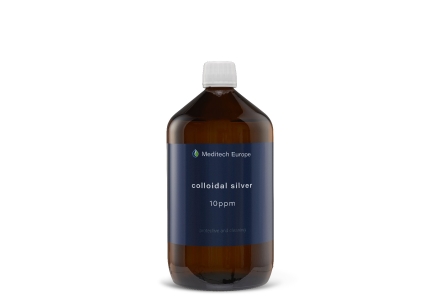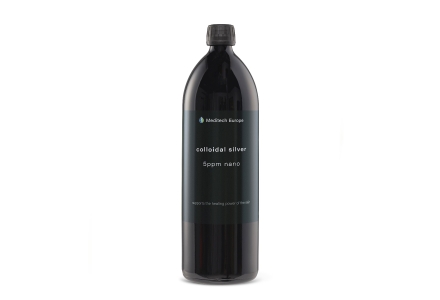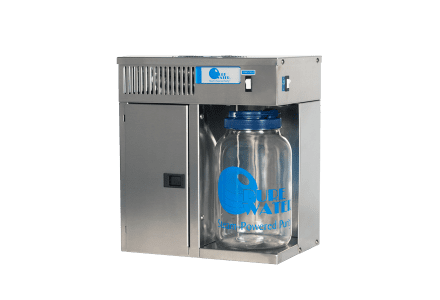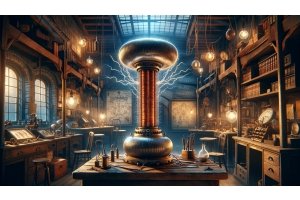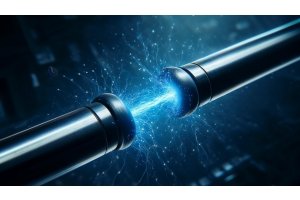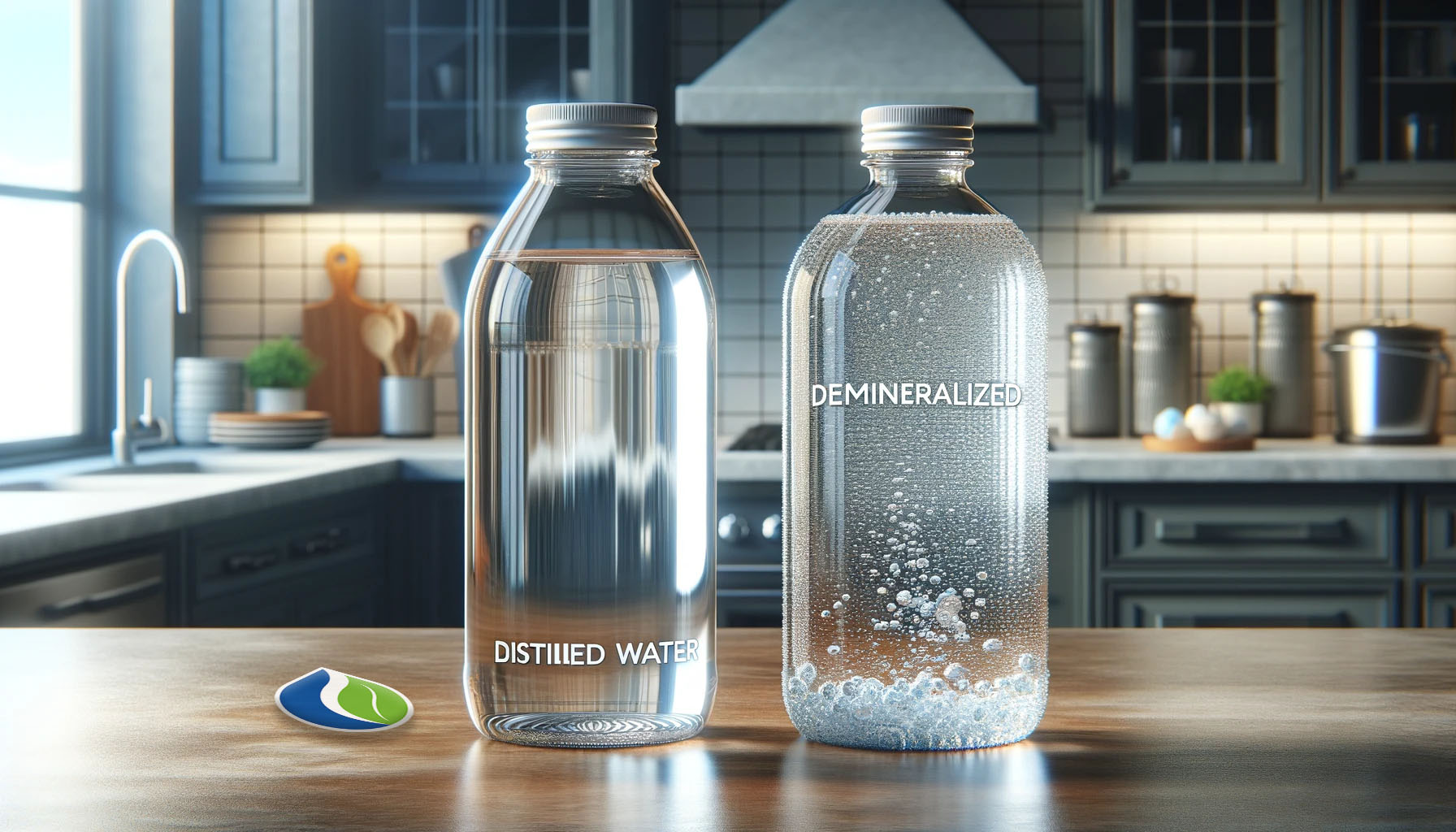
In the world of pure water, there are several terms that are often used interchangeably, but each has its own unique properties and applications. Demineralised water and distilled water are two such terms that are often confused. In this comprehensive blog, we will take an in-depth look at these two types of water, discuss their differences and similarities, and explore their applications. We will also discuss which of the two is most suitable for producing colloidal silver and colloidal gold, and what to look out for when buying or distilling pure water yourself. Finally, we will answer some frequently asked questions and point out reliable sources to purchase high-quality water distillation equipment.
What is Demineralised Water?
Demineralised water, also known as Demi water, is water that is free of most of the minerals and ions normally found in ordinary tap water. It is produced by a process known as "deionisation" or "deminerallisation". Here is a detailed explanation of what demineralised water is and how it is produced:
Source water: The process starts with ordinary tap water or another source of water, such as river water or groundwater. This water may contain various minerals and ions, such as calcium, magnesium, sodium, chloride, sulphate and many others.
Pre-treatment: Before water can be demineralised, it often undergoes pre-treatment to remove particles and organic matter. This can be done through processes such as filtration and sedimentation.
Ion exchange: The core process for demineralising water is ion exchange. This is usually carried out using special resins that can adsorb and exchange ions. There are two main types of ion exchange resins:
Cation exchange resins: these resins remove positively charged ions, such as calcium (Ca²⁺) and magnesium (Mg²⁺), from the water and replace them with hydrogen ions (H⁺).
- Anion exchange resins: These resins remove negatively charged ions, such as chloride (Cl-) and sulphate (SO₄²-), from the water and replace them with hydroxide ions (OH-).The water flows through columns containing these resins, exchanging the ions in the water for hydrogen and hydroxide ions. This process leads to the formation of pure water free of most minerals and ions.
- Neutralisation: After ion exchange, the water may still be slightly acidic or alkaline due to the presence of hydrogen and hydroxide ions. To make the water neutral, it is often passed through a neutralisation column in which the hydrogen and hydroxide ions react with each other to form pure water (H₂O)
The end result of demineralisation is water with very low conductivity and virtually no dissolved minerals. It is important to note that demineralised water may still contain small amounts of impurities, as it is almost impossible to completely remove all minerals and ions.
What is Distilled Water?
Distilled water is water that is pure and free of impurities, minerals, salts and other impurities. It is produced by the process of distillation, a separation technique based on the principle of evaporating water and then condensing the water vapour to obtain pure water. Here is a detailed explanation of the process of producing distilled water:
Evaporation: The distillation process starts by heating tap water in a special distillation flask or distillation tank. This heating causes the water to evaporate, producing water vapour.
Condensation: The water vapour produced from the heated water is then led to a condenser. The condenser is usually a pipe system with cold water flowing around it or a cooling coil. The cold environment inside the condenser causes the water vapour to cool rapidly and condense into liquid water.
Removal of impurities: During the condensation process, all impurities and contaminants present in the original water are not included in the condensed water vapour. These impurities remain in the original container in which the uncondensed water was located, the residue. This is why distilled water is generally considered the purest variant.
Since only water vapour is captured and condensed, all impurities are left behind in the original water. This makes distilled water extremely pure and suitable for a wide range of applications.
What are both types used for?
Both demineralised water and distilled water have a wide range of uses, depending on their purity and quality. Here are some common uses for both types of water:
Demineralised Water
- Laboratory use: Demineralised water is often used in laboratories for solution preparation, analytical chemistry and other laboratory procedures.
- Industrial processes: Demineralised water is used in various industrial processes to prevent the formation of deposits and corrosion.
- Coolant: It is used as a coolant in cooling systems and air conditioners to reduce mineral formation on heat exchangers.
- Battery production: Demineralised water is often used in battery production to prevent unwanted chemical reactions.
Distilled water
- Medical applications: Distilled water is used for medical procedures and equipment, such as sterilising medical instruments.
- Steam irons: It is often recommended for use in steam irons to prevent limescale deposits.
- Car batteries: Distilled water is used to refill batteries to extend their life.
- Chemical and pharmaceutical production: In the chemical and pharmaceutical industries, distilled water is often used as a purity standard.
Which type is suitable for Colloidal Silver and Colloidal Gold production?
Colloidal silver and colloidal gold are suspensions of very small metal particles in water. These particles have special properties and are often used for various medical and industrial purposes. The type of water used in the production of colloidal solutions is crucial, as impurities in the water can affect the properties of the solution.
Distilled water is preferred in the production of colloidal silver and colloidal gold. This is because distilled water is virtually free of all impurities, including minerals and ions, which can enter into a chemical reaction with the metal particles. Small amounts of minerals may still be present in demineralised water, and these can lead to changes in the composition and stability of colloidal solutions.
The production of colloidal silver and colloidal gold requires very pure water to ensure that the desired particle size and distribution are maintained. Distilled water offers this purity and is therefore the best choice for these applications.
What should you look out for when buying pure water?
If you want to purchase pure water, there are some important considerations to keep in mind:
Purity level: Check the specifications of the offered water to determine whether it meets the required purity level for your application. For most applications requiring very pure water, distilled water is the best choice.
Source and supplier: Choose a reliable source and supplier for pure water. This can be a local supplier or a specialised company that meets industry standards for water purity.
Storage and handling: Make sure you store and handle the pure water properly to avoid contamination. Use clean containers and avoid exposure to contaminants.
Cost: Compare the cost of demineralised water and distilled water with other purification methods, and decide which option is most cost-effective for your application.
What should you pay attention to if you want to distill your own water?
If you are considering distilling water yourself, here are some important considerations:
Equipment: Make sure you have high-quality water distillation equipment. Meditech Europe offers reliable water distillers suitable for various applications. Contact us at info@meditecheurope.nl or +31527 292 331 for advice and information on available equipment.
Safety: Follow proper safety procedures when distilling water, as the process involves heating water. Ensure good ventilation and avoid inhaling fumes.
Storage and handling: Once you have distilled water, store it in clean containers and handle it with care to avoid contamination.
Maintenance: Maintain your water distillation equipment regularly according to the manufacturer's recommendations to maintain optimal performance.
Are there any methods of adding Minerals to Distilled Water?
Yes, it is possible to infuse distilled water with minerals if desired for specific applications. This can be achieved by adding minerals to the distilled water. There are products available that are designed to mineralise distilled water according to specific needs. These minerals may be essential for certain applications, such as preparing drinking water or adjusting the pH of water for use in aquariums.
FAQ
What is the difference between Demineralised Water and Distilled Water?
The main difference between demineralised water and distilled water is purity. Demineralised water still contains small amounts of minerals and ions, while distilled water is free of all impurities, including minerals.
What advantages do both these types of water have?
Demineralised water is suitable for many industrial and laboratory applications where some presence of minerals is acceptable. Distilled water, however, is suitable for applications where the highest possible purity is required, such as the production of colloidal silver and colloidal gold, as well as medical and pharmaceutical procedures.
Where can I buy good and reliable products to distil water?
Meditech Europe is ready to advise you and supply high-quality water distillation equipment. Contact us at info@meditecheurope.nl or +31527 292 331 for more information and support in choosing the right equipment for your needs.
In conclusion, demineralised water and distilled water are both valuable forms of pure water, each with their own uses and benefits. It is crucial to choose the right type of water based on the specifications of your project and to carefully consider whether you want to purchase water or distil it yourself. Meditech Europe is always ready to help provide high-quality water distillation equipment and expert advice.
